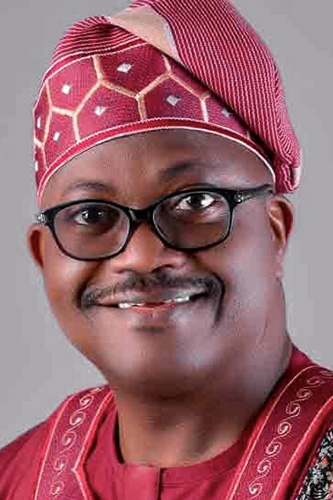

 At the end of its 2024 term, the Supreme Court made two landmark rulings that limit federal agencies' regulatory powers. Loper Bright Enterprises v. Raimondo curtails their ability to create new regulations, while SEC v. Jarkesy reduces their capacity to enforce existing laws. These decisions significantly weaken agencies like the FCC in regulating sectors of the national economy, marking a substantial shift in administrative authority. more
At the end of its 2024 term, the Supreme Court made two landmark rulings that limit federal agencies' regulatory powers. Loper Bright Enterprises v. Raimondo curtails their ability to create new regulations, while SEC v. Jarkesy reduces their capacity to enforce existing laws. These decisions significantly weaken agencies like the FCC in regulating sectors of the national economy, marking a substantial shift in administrative authority. more
 On September 22, the United Nations General Assembly adopted the Global Digital Compact (GDC), marking one of the most significant intergovernmental agreements on digital issues in the past two decades. Appended to the Pact for the Future, the GDC is a non-binding agreement that outlines a global governance framework for a wide range of digital issues, including internet governance and the Internet Governance Forum (IGF). more
On September 22, the United Nations General Assembly adopted the Global Digital Compact (GDC), marking one of the most significant intergovernmental agreements on digital issues in the past two decades. Appended to the Pact for the Future, the GDC is a non-binding agreement that outlines a global governance framework for a wide range of digital issues, including internet governance and the Internet Governance Forum (IGF). more
 In today's interconnected world, your business's online identity is increasingly more vulnerable than ever. With the rapid advancement of AI and 6G technologies, cyber threats are evolving at an alarming rate, making it critical to protect your brand's digital presence. How can businesses proactively safeguard their online identity in this changing landscape? more
In today's interconnected world, your business's online identity is increasingly more vulnerable than ever. With the rapid advancement of AI and 6G technologies, cyber threats are evolving at an alarming rate, making it critical to protect your brand's digital presence. How can businesses proactively safeguard their online identity in this changing landscape? more
 The Summit of the Future (SotF) was held at the United Nations Headquarters in New York on September 22 -- 23, 2024. World leaders, in the presence of stakeholders from the private sector, civil society, academic/technical communities, and youths, endorsed a landmark Pact for the Future of mankind. The Pact for the Future (P4F) (A/RES/79/1) was a significant, consensus-driven but non-binding document agreed upon by world leaders specifically on September 22, 2024. more
The Summit of the Future (SotF) was held at the United Nations Headquarters in New York on September 22 -- 23, 2024. World leaders, in the presence of stakeholders from the private sector, civil society, academic/technical communities, and youths, endorsed a landmark Pact for the Future of mankind. The Pact for the Future (P4F) (A/RES/79/1) was a significant, consensus-driven but non-binding document agreed upon by world leaders specifically on September 22, 2024. more
 In my recent article on mark similarity measurement, I discussed a possible framework for protecting colour marks. The framework involves the specification of each colour according to its RGB (red-green-blue) specification (in which each component is expressed as an integer value between 0 and 255), with the suggestion that the protection afforded by a colour trademark could incorporate not only this exact colour, but also all similar colours around it up to a certain 'distance'... more
In my recent article on mark similarity measurement, I discussed a possible framework for protecting colour marks. The framework involves the specification of each colour according to its RGB (red-green-blue) specification (in which each component is expressed as an integer value between 0 and 255), with the suggestion that the protection afforded by a colour trademark could incorporate not only this exact colour, but also all similar colours around it up to a certain 'distance'... more
 Central to many intellectual property disputes is an assessment of the degree of similarity of two contested marks. A determination of similarity is fundamentally a subjective decision involving a range of relevant tests, which include consideration of the perception of the relevant consumer and recognition of the existence of degrees of similarity within a spectrum (from high to low). more
Central to many intellectual property disputes is an assessment of the degree of similarity of two contested marks. A determination of similarity is fundamentally a subjective decision involving a range of relevant tests, which include consideration of the perception of the relevant consumer and recognition of the existence of degrees of similarity within a spectrum (from high to low). more
 As if we didn't have a long enough list of problems to worry about, Lumen researchers at its Black Lotus Labs recently released a blog that said that it knows of three U.S. ISPs and one in India was hacked this summer. Lumen said the hackers took advantage of flaws in software provided by Versa Networks being used to manage wide-area networks. more
As if we didn't have a long enough list of problems to worry about, Lumen researchers at its Black Lotus Labs recently released a blog that said that it knows of three U.S. ISPs and one in India was hacked this summer. Lumen said the hackers took advantage of flaws in software provided by Versa Networks being used to manage wide-area networks. more
 Global leaders gathered in New York at the Summit of the Future and adopted the "Pact for the Future" on Sunday 22nd September. This is a historic milestone as the Pact is the first international agreement aimed at securing a better digital future for all, grounded in human rights. The recent adoption of the "Pact for the Future" at the United Nations General Assembly marks a significant step toward revitalizing multilateral cooperation in an increasingly fragmented world. more
Global leaders gathered in New York at the Summit of the Future and adopted the "Pact for the Future" on Sunday 22nd September. This is a historic milestone as the Pact is the first international agreement aimed at securing a better digital future for all, grounded in human rights. The recent adoption of the "Pact for the Future" at the United Nations General Assembly marks a significant step toward revitalizing multilateral cooperation in an increasingly fragmented world. more
 Despite global polarization, recent UN cyber diplomacy has achieved three significant agreements in 2024: a cyber attack reporting system, a convention against cybercrime, and a "Global Digital Compact." These successes show that consensus on global issues is possible, though the vague wording of agreements raises concerns about their long-term effectiveness in ensuring security and peace. more
Despite global polarization, recent UN cyber diplomacy has achieved three significant agreements in 2024: a cyber attack reporting system, a convention against cybercrime, and a "Global Digital Compact." These successes show that consensus on global issues is possible, though the vague wording of agreements raises concerns about their long-term effectiveness in ensuring security and peace. more
 In the fourth in this series of articles exploring how the application of appropriate tools, algorithms and analysis techniques can identify the existence of attractive, unregistered brandable domain names, I consider the prevalence of a few additional styles of name. more
In the fourth in this series of articles exploring how the application of appropriate tools, algorithms and analysis techniques can identify the existence of attractive, unregistered brandable domain names, I consider the prevalence of a few additional styles of name. more
 A long-running issue resurfaced recently asking if light poles should be made available for telecommunications. This idea that light poles might be telecom infrastructure comes from language included in Section 224 of the United States Federal Communications Commission's (FCC) code that says that a "utility shall provide a cable television system or any telecommunications carrier with nondiscriminatory access to any pole, duct, conduit, or right-of-way owned or controlled by it." more
A long-running issue resurfaced recently asking if light poles should be made available for telecommunications. This idea that light poles might be telecom infrastructure comes from language included in Section 224 of the United States Federal Communications Commission's (FCC) code that says that a "utility shall provide a cable television system or any telecommunications carrier with nondiscriminatory access to any pole, duct, conduit, or right-of-way owned or controlled by it." more
 The previous two articles in this series have outlined techniques for 'mining' brandable domain names -- that is, domain names of potential interest to entities looking to launch a new brand name and associated website -- from the enormous dataset of unregistered names (determined via zone file analysis). The key element of the identification process is the implementation of filtering techniques to identify... more
The previous two articles in this series have outlined techniques for 'mining' brandable domain names -- that is, domain names of potential interest to entities looking to launch a new brand name and associated website -- from the enormous dataset of unregistered names (determined via zone file analysis). The key element of the identification process is the implementation of filtering techniques to identify... more
 At first glance, this book looks like another history of the Internet, but it is much, much more. The authors use their engineering and scholarly understanding of what constitutes Internet history to identify forks in the digital road and key past decisions that shaped the Internet's path. The first part of the book maps out the core technical and policy decisions that created the Internet. more
At first glance, this book looks like another history of the Internet, but it is much, much more. The authors use their engineering and scholarly understanding of what constitutes Internet history to identify forks in the digital road and key past decisions that shaped the Internet's path. The first part of the book maps out the core technical and policy decisions that created the Internet. more
 SpaceX first departed from its uniform Starlink pricing policy when it offered a reduced price for throttled service in France two years ago. Since then, many new, higher-capacity satellites have been launched, enabling SpaceX to reduce prices in low and middle-income countries like Kenya. Kenya had 405 geostationary satellite internet subscribers when Starlink became available in July 2023. more
SpaceX first departed from its uniform Starlink pricing policy when it offered a reduced price for throttled service in France two years ago. Since then, many new, higher-capacity satellites have been launched, enabling SpaceX to reduce prices in low and middle-income countries like Kenya. Kenya had 405 geostationary satellite internet subscribers when Starlink became available in July 2023. more
 My previous article on brandable domain names1 -- that is, available (unregistered) domain names which may be appealing to any entity looking to identify a potential name for a new brand launch -- focused on the use of phonotactic (i.e. 'readability') analysis techniques to identify candidate names. more
My previous article on brandable domain names1 -- that is, available (unregistered) domain names which may be appealing to any entity looking to identify a potential name for a new brand launch -- focused on the use of phonotactic (i.e. 'readability') analysis techniques to identify candidate names. more
Sponsored byWhoisXML API

Sponsored byVerisign

Sponsored byCSC

Sponsored byRadix

Sponsored byDNIB.com

Sponsored byVerisign

Sponsored byIPv4.Global
